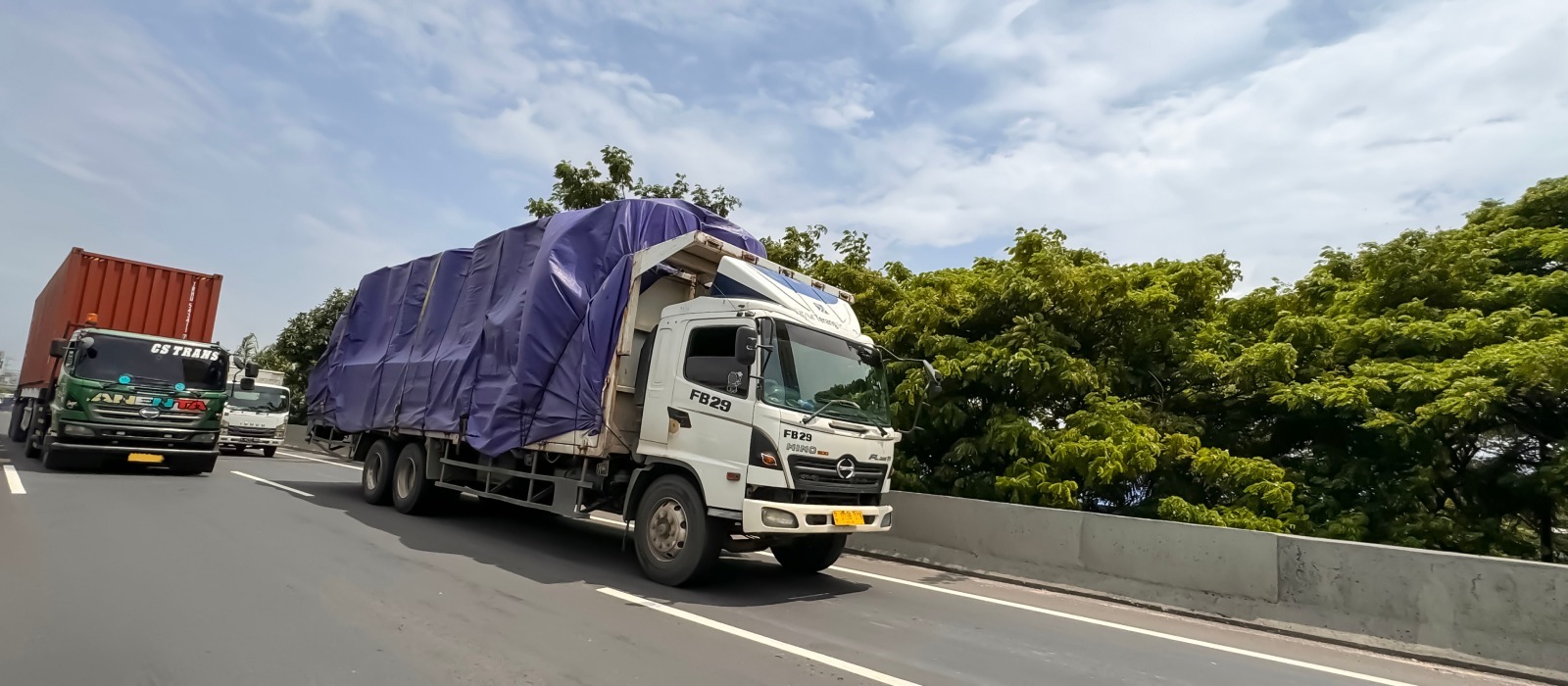Individual Insurance
Types of Individual Insurance
- Car Insurance
- Two Wheeler Insurance
- Commercial VehicleInsurance
- Personal AccidentInsurance
- Travel Insurance
- Property Insurance
- Cyber Insurance
Private Car Insurance

Objective of Private Car Insurance
Financial Protection Against Physical Damage from Accidents.
Provides Financial Protection Against Theft and Non-collision Damage (E.g., Vandalism, Weather-related Damage, Impacts with Stationary Objects).
Coverage For Third-party Liability Arising From Vehicle Incidents.
Types of Car Insurance
Third-Party Insurance / Liability Only
Covers damages to third parties.
Comprehensive Insurance
Combines third-party and own damage Insurance, offering extensive coverage.
Own Damage Insurance
Covers damages to your own vehicle.
Mandatory Requirement*: As per the Motor Vehicles Act of 1988, all vehicle owners are required to have insurance for public road use, covering potential damages to third parties.
Add-ons
Depreciation Reimbursement
Daily Allowance
Return to Invoice (RTI)
No Claim Bonus Protection
Repair of Glass, Fibre, Plastic & Rubber Parts
Loss of Personal Belongings
Emergency Transport & Hotel Expenses
Key Replacement
Courtesy / Hire Car
Engine Secure
Tyres Secure
Consumable Expenses
Roadside Assistance
Our Products
Two Wheeler Insurance

Objective of Two Wheeler Insurance
Protects Against Physical Damage From Accidents.
Provides Financial Protection Against Theft and Non-collision Damage (E.g., Vandalism, Weather-related Damage, Impacts with Stationary Objects).
Covers Third-party Liability For Damages or Injuries Caused By The Vehicle.
Types of Two Wheeler Insurance
Third-Party Insurance
Mandatory coverage for liabilities to third parties.
Comprehensive Insurance
Combines third-party and own damage coverages for broader protection.
Own Damage Insurance
Protects against damage to the insured vehicle itself.
Applicable to* : Scooters & Motorcycles
Why It's Essential
Return to Invoice (RTI)
Depreciation Allowance
Roadside Assistance
Our Products
Commercial Vehicle Insurance

Objective of Commercial Insurance
Provides Financial Protection for Vehicle Owners Against Physical Damage or Bodily Injury From Vehicular Accidents.
Provides Financial Protection Against Theft and Non-collision Damage (E.g., Vandalism, Weather-related Damage, Impacts with Stationary Objects).
Covers Third-party Liabilities for Damages or Injuries Caused by the Vehicle.
Types of Commercial Insurance
Third-Party Insurance / Liability Only
Essential for covering damages to others.
Comprehensive Insurance
A holistic approach combining third-party and own damage protections.
Own Damage Insurance
Protects the insured vehicle from damages.
Mandatory Coverage*: According to the Motor Vehicles Act of 1988, all commercial vehicles must have insurance to cover potential third-party liabilities. Applicable Vehicles: Includes all commercial vehicles like trucks, buses, tippers, trailers, 3-wheelers, JCBs, ambulances, etc.
Addons
Depreciation Allowance
Additional towing
Consumable Expenses
Our Products
Personal Accident Insurance

Objective of Personal Accident Insurance
Coverage for Accidental Death
In case of the policyholder’s accidental death, the insurance provides a lump sum payment to the nominated beneficiaries, ensuring financial support during a challenging time.
Medical Expense Reimbursement
Many personal accident policies also cover the medical expenses incurred due to the accident. This includes hospitalization, surgery, and medication costs, alleviating the burden of medical bills.
Daily or Weekly Benefits
Some policies offer daily or weekly cash allowances if the policyholder is hospitalized or temporarily disabled due to an accident, helping to cover lost income or additional expenses during recovery.
Coverage for Accidental Disfigurement
Compensation may also be available for disfigurement or scarring caused by an accident, recognizing the impact of such injuries on the individual’s life.
Disability Coverage
It offers financial compensation for total or partial disability resulting from an accident. This can include both temporary and permanent disability, providing a financial cushion to cope with the loss of income and medical expenses.
Educational Support
In the event of the policyholder’s death or severe disability, the policy may provide an educational grant for dependent children, ensuring their education is not disrupted.
Worldwide Coverage
Personal Accident Insurance often provides global protection, ensuring policyholders are covered no matter where they are in the world.
Exclusion
Natural death
Committing a criminal act or being involved in war activities, suffering from a mental disorder.
Non-allopathic treatments
Childbirth or pregnancy
Suicide or self-injuries
Pre-existing disability or injury
Participating in the naval, military, air force, adventurous or sports activities
Influence of intoxicants
Types of Personal Accident Insurance
Individual Accident Insurance
Group Accident Insurance
Reasons to choose personal Accident insurance
Financial Security
Covers a Range of Incidents
No Medical Examinations Required
Affordable Premiums
Our Products
Travel Insurance

Objective of Travel Insurance
Trip Cancellation and Interruption
Covers costs if your trip is unexpectedly canceled or cut short due to covered reasons such as illness, natural disasters, or family emergencies.
Baggage and Personal Effects Loss
Reimburses for lost, stolen, or damaged luggage and personal items.
Travel Delays
Compensates for additional accommodation and meal expenses due to delayed flights or transportation.
Emergency Evacuation
Provides for medical evacuation to the nearest suitable medical facility or repatriation back home in case of serious illness or injury.
Medical Coverage
Offers financial protection for medical expenses incurred due to accidents or illnesses while traveling, including hospital stays and treatments.
24-hour Assistance Services
Access to a global support network for assistance with medical emergencies, lost passports, and more.
Exclusion
Pre-existing Medical Conditions
Many policies do not cover issues arising from pre-existing medical conditions unless specified otherwise.
Alcohol or Drug-Related Incidents
Accidents or losses resulting from the misuse of drugs or alcohol are usually excluded.
War and Civil Unrest
Incidents resulting from war, terrorism, or civil unrest may not be covered.
High-Risk Activities
Activities considered high risk, like skydiving, may not be covered unless additional coverage is purchased.
Travel for Medical Procedures
Trips taken for the purpose of receiving medical treatment are often not covered.
Reasons to choose personal Accident insurance
Peace of Mind
Protection from High Costs
Recovery of Prepaid Costs
Global Support
Our Products
Property Insurance

Objective of Property Insurance
Structure Coverage
Protects the physical structure of your home or business premises against damage from events like fires, storms, and other covered disasters.
Liability Protection
Offers financial protection if someone is injured on your property and you are found legally responsible, covering legal fees and medical expenses.
Business Interruption
For commercial properties, this covers loss of income and additional expenses if your business operations are disrupted due to a covered event.
Personal Property Protection
Covers the loss or damage of personal belongings within the property due to theft, vandalism, or disasters.
Additional Living Expenses (Ale)
For homeowners, if your home is uninhabitable due to a covered disaster, ALE helps cover the costs of temporary housing and living expenses.
Exclusion
Natural Wear and Tear
Damage that occurs gradually over time, such as rust, rot, and mold, is typically not covered.
Certain Natural Disasters
Events like earthquakes, floods, and sometimes hurricanes might not be covered under standard policies and may require additional coverage.
Government Action
Losses resulting from the confiscation or seizure of property by governmental authorities are not covered.
Intentional Damage
Losses resulting from deliberate acts of destruction by the policyholder are not covered.
Nuclear Hazards and War
Damage caused by nuclear incidents or acts of war is generally excluded from coverage.
Why It's Essential
Financial Protection
Peace of Mind
Legal Requirement
Asset Preservation
Our Products
One Stop Solution
Cyber Insurance

Objective of Cyber Insurance
Identity Theft Protection
Covers expenses and losses incurred from restoring your identity and credit reports following identity theft.
Unauthorized Financial Transactions
Reimburses for losses due to unauthorized or fraudulent bank, credit card, and other financial transactions conducted online.
Cyber Extortion (Cyber - Attacks)
Provides coverage for expenses and payments made in response to ransomware or other cyber extortion demands.
Phishing and Social Engineering Fraud
Offers protection against losses from deceptive practices that trick individuals or employees into sending money or revealing sensitive information.
Data Breach Costs
For businesses, it covers the costs associated with a data breach, including customer notification, credit monitoring services, and legal fees.
Exclusion
Loss of Physical Money
Excludes transactions involving physical money, cash, or currency equivalents, including ATM withdrawals. Also excludes direct financial loss from the physical loss or theft of a card, phone, laptop, or other devices.
Cyber Extortion Loss
Defines as the act of using threats or attacks on computer systems or data to demand money or other benefits.
Unexplained or Mysterious Disappearance
Refers to losses reported without any clear reason, evidence, or explanation for their occurrence.
Gross Negligence
Excludes any loss resulting from gross negligence in taking precautions to safeguard the insured beneficiary’s personal data and interests.
Fraudulent or Dishonest Conduct
Excludes losses due to deliberate criminal, fraudulent, dishonest, or malicious acts, or intentional violations of any duty, obligation, contract, law, or regulation. Includes any direct financial loss caused intentionally and unlawfully.
Trading
Excludes any losses or liabilities connected with transactions or dealings in securities, commodities, derivatives, currencies, foreign exchange, crypto currencies, and similar financial instruments.
